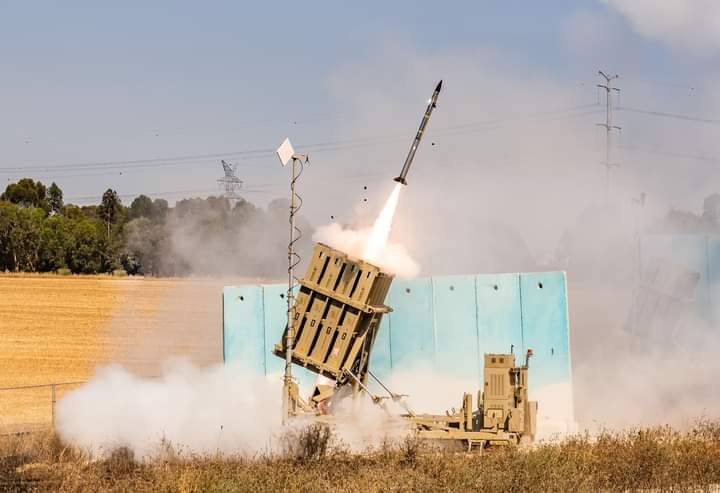Negotiations between Israel and Hamas to extend the Gaza truce were overshadowed at the last minute on Wednesday by an unconfirmed claim by Hamas that a family of Israeli hostages including a 10-month-old baby had been killed.
Shortly before the final release of women and children hostages scheduled under the truce, the military wing of Hamas said in a statement that the youngest hostage, baby Kfir Bibas, had been killed in an earlier Israeli bombing, along with his four-year-old brother Ariel and their mother.
Their father, who has also been held, was not mentioned in the statement.
Israeli officials said they were checking the Hamas claim, a highly emotive issue in Israel where the family is among the highest-profile civilian hostages yet to be freed.
“The IDF (Israel Defense Forces) is assessing the accuracy of the information,” the military said in a statement which added that it held Hamas responsible for the safety of all the hostages in Gaza.
Relatives had issued a special appeal for the family’s freedom after the children and their parents were excluded from the penultimate group freed on Tuesday.
An Israeli official said it would be impossible to extend the ceasefire on Thursday morning, due to a lapse, without a commitment to release all women and children among the hostages.
The official said Israel believed militants were still holding enough women and children to prolong the truce by 2-3 days.
Egyptian security sources also said negotiators believed a two-day extension was possible.
Families of those Israeli hostages due to be released later on Wednesday had already been informed earlier of their names, the final group to be freed under the truce unless negotiators succeeded in extending it.
Officials did not say at the time whether that included the Bibas family.
Gaza’s Hamas rulers published a list of 15 women and 15 teenage Palestinians to be released from Israeli jails in return for the hostages released on Wednesday.
The hostages were seized by militants in their deadly raid on Israel on Oct. 7.
For the first time since the truce began, the list of Palestinians to be freed included Palestinian citizens of Israel, as well as residents of occupied territory.
So far, Gaza militants have freed 60 Israeli women and children from among 240 hostages, under the deal that secured the war’s first truce.
At least 21 foreigners, mainly Thai farmworkers, were also freed under separate parallel deals.
In return, Israel has released 180 Palestinian security detainees, all women and teenagers.
The initial four-day truce was extended by 48 hours from Tuesday, and Israel said it would be willing to prolong it further for as long as Hamas frees 10 hostages a day.
But with fewer women and children still in captivity, that could mean agreeing to terms governing the release of at least some Israeli men for the first time.
A Palestinian official said negotiators were hammering out whether Israeli men would be released on different terms than the exchange for three Palestinian detainees each that had previously applied to the women and children.
Israeli government spokesperson Eylon Levy said Israel would consider any serious proposal, though he declined to provide further details.
“We are doing everything we can in order to get those hostages out. Nothing is confirmed until it is confirmed,” Levy told reporters in Tel Aviv.
“We’re talking about very sensitive negotiations in which human lives hang in the balance,” he added.
Prime Minister Benjamin Netanyahu repeated his earlier pledges to pursue the war to annihilate Hamas, once the ceasefire lapses.
“There is no way we are not going back to fighting until the end.
“This is my policy. The entire cabinet stands behind it. The entire government stands behind it. The soldiers stand behind it. The people stand behind it. This is exactly what we will do,” he said in a statement.
Tuesday’s release also included for the first time hostages held by Islamic Jihad, a separate militant group, as well as by Hamas itself.
“The ability of Hamas to secure the release of hostages held by other factions had been an issue in earlier talks.
The truce has brought the first respite to a war launched by Israel to annihilate Hamas after the “Black Shabbat” raid by gunmen who killed 1,200 people on the Jewish rest day, according to Israel’s tally.
Israeli bombardment has since reduced much of Gaza to a wasteland, with more than 15,000 people confirmed killed, 40 per cent of them children, according to Palestinian health authorities deemed reliable by the United Nations.
Many more are feared buried under the ruins. The Palestinian health ministry said another 160 bodies had been pulled out of rubble during the past 24 hours of the truce, and around 6,500 people were still missing.
Israel rejects calls for ceasefire before UN Security Council
Israel at the United Nations Security Council in New York on Wednesday rejected calls for a permanent ceasefire in the Gaza war.
Israeli UN Ambassador Gilad Erdan told the most powerful UN body that with a ceasefire in place, Israel would not be able to protect its citizens.
“Anyone who supports a ceasefire basically supports Hamas’ continued reign of terror in Gaza,” he said.
One could not demand a ceasefire and at the same time claim to be seeking a solution to the conflict, Erdan said further, noting that the militant Hamas is not a partner for reliable peace.
“Hamas has publicly stated – you all saw it – that it will repeat Oct. 7 over and over again until Israel is no more.
“How would you respond and defend your citizens from such a clear threat with a ceasefire?” he queried.
Erdan maintained that there could only be an end to the violence if Hamas handed over all its hostages and everyone else involved in the attack on Israel on Oct. 7.








